Search
 News
News
UCSF Health Reaches Lung Transplant Milestone
Surgeons at the UCSF Lung Transplant program have performed over 100 transplants in a 12-month period, making it one of a handful of medical centers in the nation to reach that milestone. Document
Document
UCSF Oral Oncology
The UCSF Oral Oncology Clinic offers consultations for the diagnosis, treatment and management of oral complications from cancer treatment. The clinic is the first and only one of its kind in Northern California.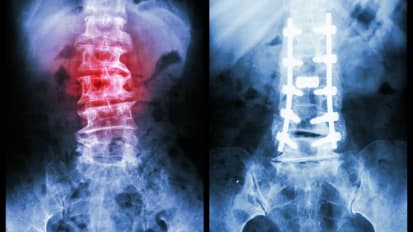 Video
Video
Awake Spinal Surgery Treatment Options
Praveen Mummaneni, MD, provides an overview of lumbar spondylolisthesis, the advantages and disadvantages of fusion and non-fusion treatment, and outcome data for specific populations, including female, elderly and obese patients. Video
Video
Multiple Myeloma: Cutting-Edge Induction and Maintenance Therapies Lead to Improved Response Rates and Survival for Newly Diagnosed Patients
Take a deep dive into therapy options for newly diagnosed myeloma patients: whether three drugs are better than two, the case for lenalidomide maintenance therapy, the many improvements in induction treatment, the future of immunotherapy, and more. News
News
Strategies for Reducing Length of Hospital Stay for Patients With Acute Severe Ulcerative Colitis
In a first-of-its-kind study, UCSF researchers assessed factors prolonging length of stay (LOS) for a diverse population of hospitalized patients with acute severe ulcerative colitis (ASUC) and identified interventions to reduce LOS for these patients.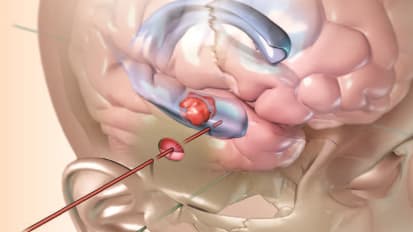 Document
Document
Cerebrovascular Neurosurgery
As one of the highest volume and most experienced surgical programs in the nation for cerebrovascular disorders, we offer a wide range of treatment options tailored to each patient, leading to safer surgeries and better outcomes.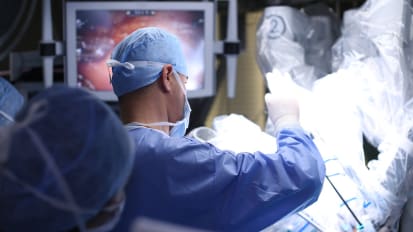 Video
Video
How Technology, Human Values and New Scrutiny of Old Methods Are Improving Cancer Outcomes
Three surgical oncologists offer exciting news on hepatobiliary, thyroid and breast cancers. First up is a look at benefits of minimally invasive robotic surgery for rectal cancers; regional therapy for metastatic GI cancer; 3D virtual surgical planning; and biomarkers for pancreatic cysts. Video
Video
CBC: Optimizing Use of an Everyday Blood Test
Hematologist Neil Dunavin, MD, a specialist in blood cancers and BMT, elucidates the commonly ordered yet imperfectly understood complete blood count, with guidance on which differential type to order and which results call for investigation.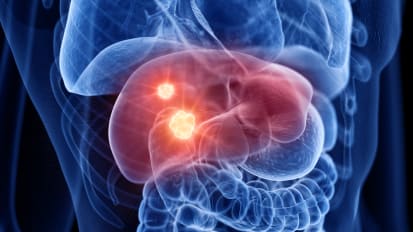 News
News
Advances in Treating Colorectal Cancer With Liver Metastases
Giving new hope to potentially thousands of patients, surgeons at UC San Francisco are now providing lifesaving procedures for many colorectal cancer patients whose cancer has spread to the liver. News
News
New Predictive MS Blood Test May Help Prevent Disability Worsening
Patients with multiple sclerosis (MS) whose blood tests reveal elevated neurofilament light chain (NfL), a biomarker of nerve damage, are at risk of experiencing disability worsening one to two years later, according to a new study spearheaded by UCSF researchers. Document
Document
Oral Dysplasia Program
Oral dysplasia patients at UCSF benefit from an internationally recognized team of multidisciplinary experts with the highest level of expertise in this difficult-to-manage and often unpredictable disease. News
News
UCSF Develops First of Its Kind Robotic Surgery Trial in Partnership with FDA
UCSF Health is recruiting patients for the only FDA-approved study of the use of single port robotic technology for colorectal surgery in the United States. News
News
Novel Therapy Saves Patient with Severe Heart Inflammation
A team at UC San Francisco is using a new class of drugs that target inflammation to treat acute fulminant myocarditis patients.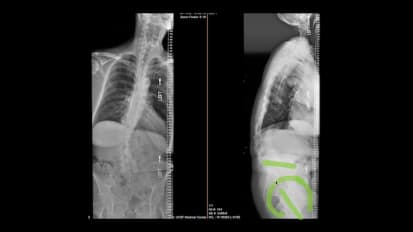 Video
Video
Approach to the Older Patient with Spinal Disorders: Diagnosis
Shane Burch, MD, MS, FRCSC, presents case examples of older patients with spinal disorders and focuses on approaches that are integral at arriving at an accurate diagnosis: patient history, physical examination and imaging, including X-ray, CT and MRI. News
News
Structural Heart Disease Expert Leads UCSF Interventional Cardiology Program
Sammy Elmariah, MD, MPH, has joined UCSF as chief of the Interventional Cardiology Program and medical director of the cardiac catheterization lab.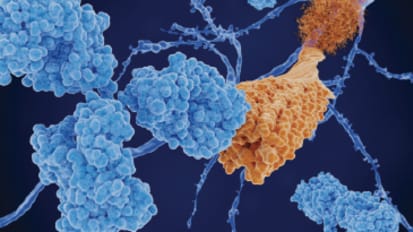 Document
Document
Cancer Immunotherapy Toxicity Evaluation (CITE) Program
UCSF Health’s new Cancer Immunotherapy Toxicity Evaluation (CITE) Program is a valuable resource for both patient care and provider consults. Video
Video
The Misery – and Consequences – of Seasonal Sneezing: How to Categorize and Care for Allergies
Otolaryngologist Anna Butrymowicz, MD, discusses the common – and growing – problem of environmental allergies, exploring reasons for the increase and looking at the impact allergies have on overall health and quality of life. Document
Document
Interstitial Lung Disease Program
Interstitial lung disease (ILD) patients at UCSF benefit from an internationally recognized team of ILD experts with the highest level of expertise in this rare and difficult-to-diagnose disease. News
News
Focused Ultrasound Stops Tremors in Patients with Movement Disorders: UCSF Case Studies
High-intensity focused ultrasound (HIFU) is an incision-free, minimally invasive outpatient procedure during which MRI-guided ultrasound is directed at the ventral intermediate (VIM) nucleus of the thalamus. News
News
How Neurons Build a 3-D Vascular Structure to Keep the Retina Healthy
Understanding how intricate networks of blood vessels in the eye and brain are formed could inspire new treatments for conditions like diabetic retinopathy and stroke. Video
Video
Primary Care of the IBD Patient: Risk Factors, Symptoms and the Value of Timely Therapeutics
In this update on inflammatory bowel disease, gastroenterologist Kendall Beck, MD, notes contributing causes, explains which tests have value, gives keys to distinguishing ulcerative colitis and Crohn’s... News
News
Cardiology Conference Featured Innovations from UCSF Health Experts
Cardiology experts from UCSF Health presented new research and clinical findings at the American College of Cardiology’s (ACC) 74th Annual Scientific Session and Expo in Chicago. News
News
Gynecologic Cancer and Lynch Syndrome: Identifying Genetic Variants Leads to Precision Treatment
Given the increased risks associated with Lynch syndrome for gynecologic, colon and other cancers, physicians at the UCSF Gynecologic Oncology Center now approach testing, surveillance and treatment based on each patient’s individual genetic risk.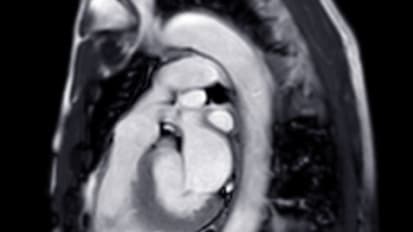 News
News
UCSF Researchers Develop Prediction Model of Aortic Aneurysm
Ascending thoracic aortic disease is an important cause of sudden death in the U.S., yet most aortic aneurysms are identified incidentally.

